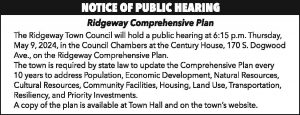BLYTHEWOOD (Aug. 11, 2016) – The Town’s A-Tax Committee was publicly chided by Mayor J. Michael Ross at a special called meeting of the Committee on Aug. 3 for tabling last month a $10,000 funding request from Band Director James Barnes for Blythewood High School’s Band Tournament and for voting against recommending $3,000 for what the A-Tax meeting minutes referred to as salaries for the staff (Executive Director Mike Switzer and his assistant Kitty Kelly) of the Blythewood Chamber of Commerce for their work with the upcoming Big Grab yard sale.
At its July 6 meeting, the A-Tax Committee took into consideration several reasons for tabling the Tournament’s request – the $31,000 profit from last year’s event, that half of the $31,000 goes to Ridge View High School, which is outside the Blythewood community and that the profits went to fund operations in the school’s band program to pay for such things as private lessons for students rather than being plowed back into the event.
As for the vote against recommending the Chamber’s $3,000 funding request, the Committee questioned whether it should be funding salaries at all.
In his remarks, the Mayor pressed the Committee to disregard profits when making recommendations. He also offered revised information, that the $3,000 for the Chamber would go to outside advertising for the Big Grab, not salaries for Switzer and Kelly. Following Ross’s remarks, Barnes and Switzer again made pleas to the Committee for funds.
This time, the Committee, without discussion, voted to reverse both votes, recommending the full funding requested by the two applicants.
Immediately following adjournment of the meeting, long-time Committee member George Sensor announced his resignation from the Committee.
“It’s a long drive over here for me,” Sensor told the Committee and Town officials.
The A-Tax Committee is only a recommending body and Town Council makes the final decision on awarding A-Tax funds. Council is not required to vote in favor of the A-Tax Committee’s recommendations. But instead of Council voting on the two issues at its regular meeting on July 25, Council asked the applicants, Switzer and Barnes, to resubmit their requests to the A-Tax Committee.
“I think we need the A-Tax Committee to understand they need to reconvene and look at what is being resubmitted,” Ross said at the July 25 meeting.
Opening that special called A-Tax Committee meeting on Aug. 3, Events and Conference Center Director Steve Hasterok, who facilitates the A-Tax Committee meetings, announced that there would be changes to the Committee’s meeting format, specifically that the meetings should be open to the public. While the meetings were never closed to the public, applicants frequently waited outside in a hallway while the Committee discussed and voted on funding. Hasterok was more specific in an interview with The Voice, saying that all applicants should know they are allowed to stay in the meetings throughout the Committee’s decision-making process.
In a related issue, The Country Chronicle newspaper in a recent article appeared to take issue with the Committee addressing questions to a representative of The Voice who was sitting in the room during the July 10 meeting. However, Hasterok told The Voice that the Committee is welcome to direct questions to anyone in the audience, but said he would like for the person answering the questions to do so from the podium.
At the Aug. 3 meeting, Ross emphasized his objection to the A-Tax Committee basing funding on whether an event made large profits or if it was used to pay salaries.
“We have guidelines,” Ross told the Committee. “The Architectural Review Board, the Planning Commission all work under guidelines from ordinances, regulations and standards. Looking at the last (A-Tax Committee) minutes, I see there’s a lot of discussion revolving around profits an event might make, and a concern that if they make $31,000, why do they need our money.”
While Ross later insisted that, “I’m not here to tell you what to do,” he added, “I just want to warn you that I don’t think anywhere in our guidelines – and it’s never been a concern of Council – what the profit margin might be. If the event brings people to eat at our restaurants, puts heads on pillows and buys gas at Larry Sharpe’s stations, then that’s what we want. But I don’t want to not have a function or event that might have been beneficial to not come because they made a profit, because they did real good, because they have other means or used their money. They still might need the seed money to have that event and be successful,” Ross said, warning the Committee a second time about funding an event based on its profit margin.
At the July 25 Council meeting Ross said he didn’t care how much profit the rodeo makes if those people have a good time and spend money in the town.
While there are no guidelines in the state statute to suggest the Committee should consider profits or salaries, there are also no guidelines to suggest that they should not.
In later comments to the Committee, Town Administrator Gary Parker said, “There’s nothing in the state statute that requires (the Committee) to consider profit of an event they are asked to fund,” but he also allowed that consideration of profit, “could be a factor that the Committee wants to consider.”
Parker said the statute basically just outlines the fact that when the community receives a certain level of funds from accommodation and hospitality tax revenues, that a committee be formed to represent the hospitality industry – hotels and restaurants. But Parker said the statute does not address terms. He said if the Committee wants to have bylaws, policies and procedures to follow, he would be happy to have the town attorney review them and send them to Council for approval.
Supporting the notion that there are few guidelines to tell the Committee specifically what it should and should not consider when making decisions regarding funding, Damita Jeter, Director of the Tourism Expenditure Review Committee (TERC) at the S.C. Department of Revenue, wrote in an email to The Voice that, “Until funds are spent and reported to TERC we have no authority to comment on these expenditures. Our role is simply oversight; therefore, (until) funds are spent and the report is remitted to us (October of each fiscal year) and the public has (raised) questions/complaints regarding the expenditures, we cannot really say whether or not certain applications should (or should not) be considered.”
Switzer has, since his original funding request, said both publicly and in an email to The Voice that the $3,000 the Chamber staff receives for salaries for their work on the Big Grab will be covered by the sale of $50 sponsorships, not A-Tax funds. An email storm subsequently erupted between Switzer and some business owners who said they oppose selling sponsorships to pay salaries to Switzer and Kelly who are the only two members of the Big Grab committee in Blythewood, Ridgeway and Winnsboro who receive salaries for their work.
In an email to Big Grab Committee members that was provided to The Voice, Switzer said, “The Blythewood Chamber is a professional business support organization whose revenues (from all sources) go to cover the costs of the organization which understandably includes staff.”
In addition to funds raised through sponsorships, the Blythewood Chamber is collecting revenue from Big Grab vendor rentals at the Blythewood Community Center where it is renting 10×10-foot indoor spaces for $80.12 and 15×30-foot outdoor spaces for $43.19.










